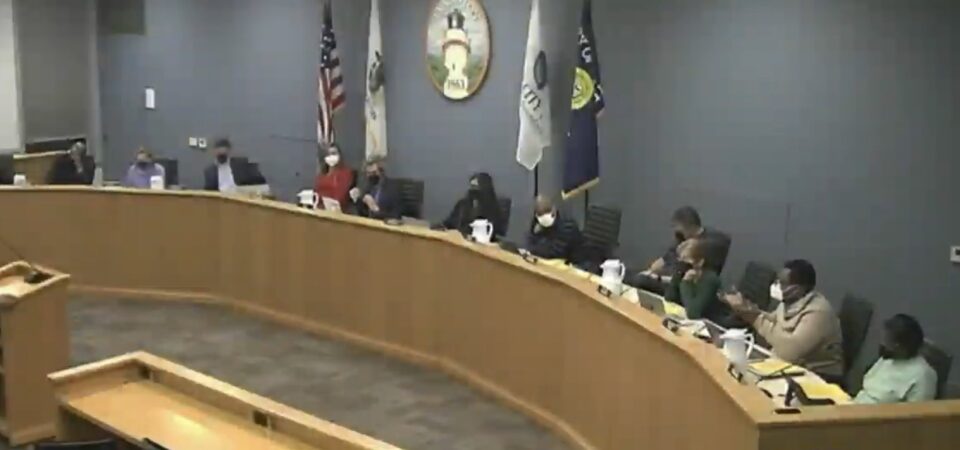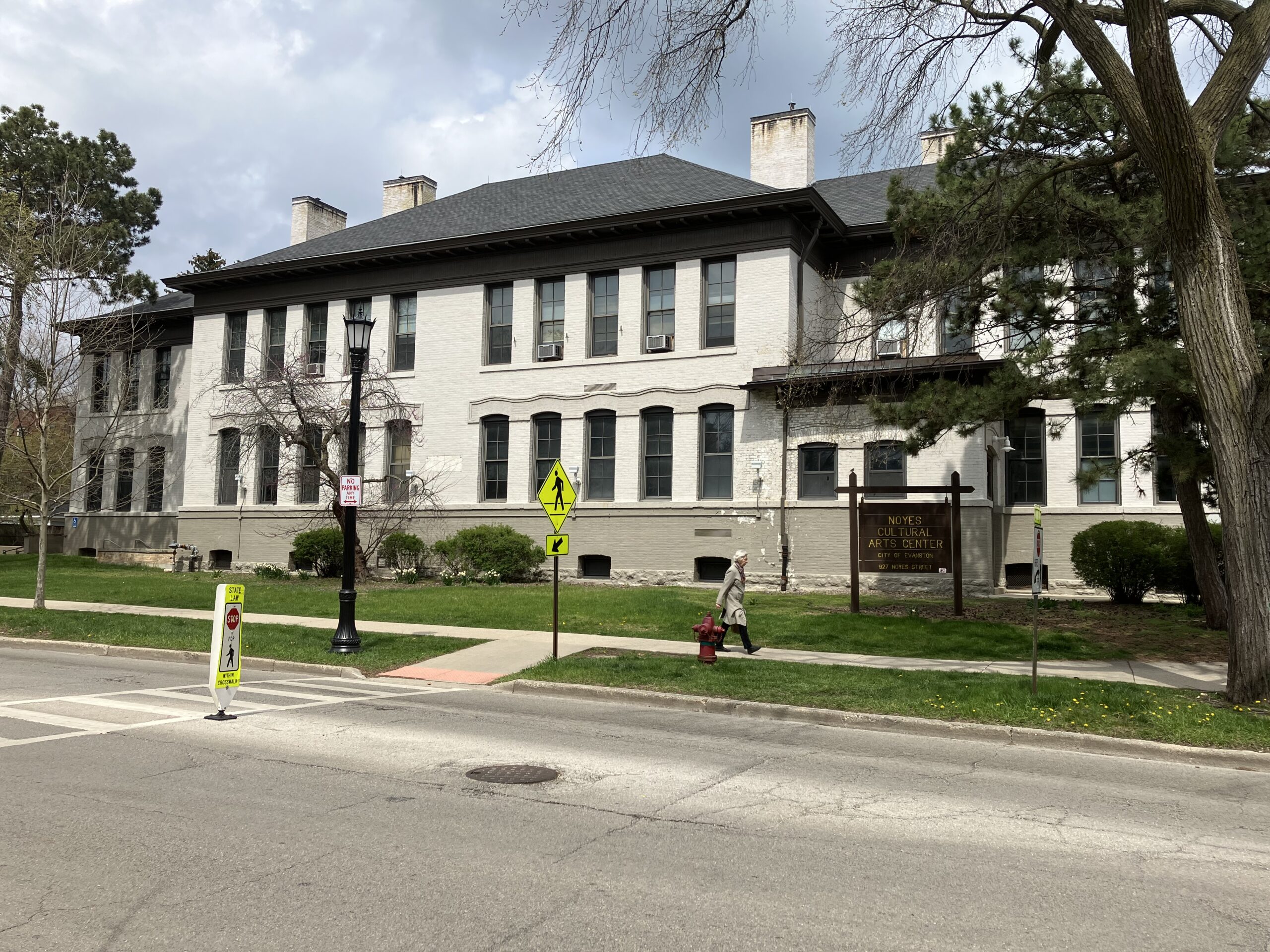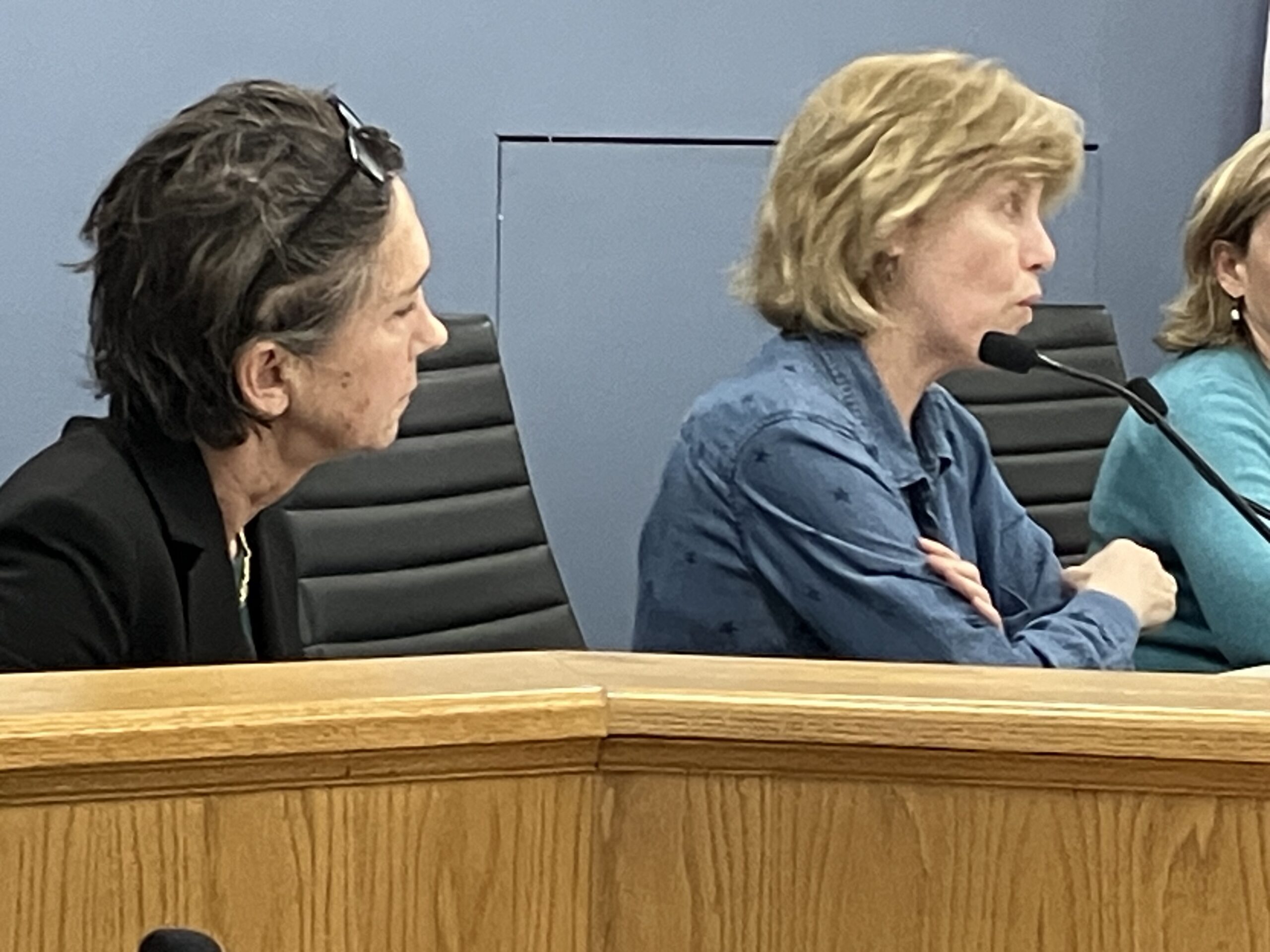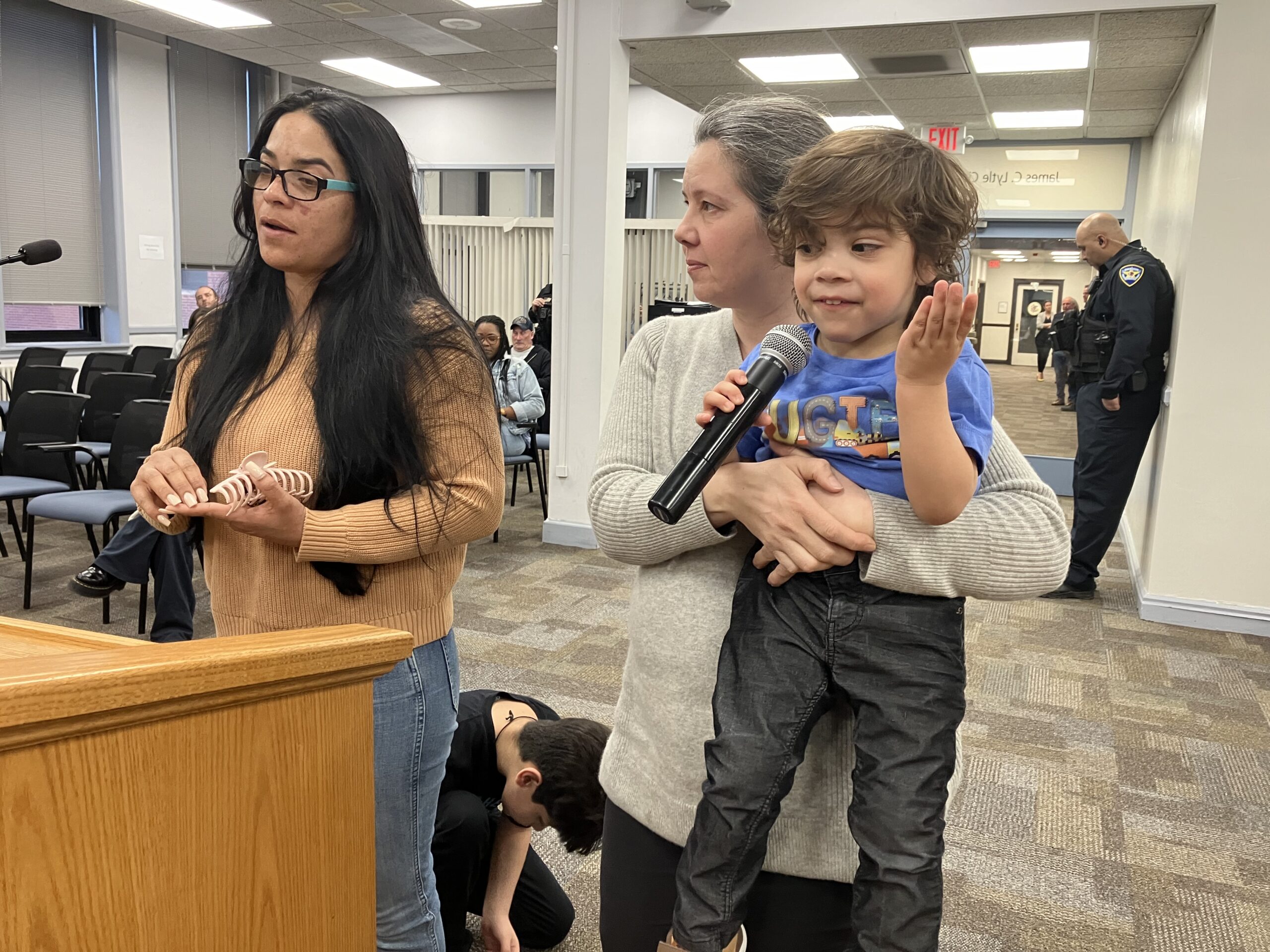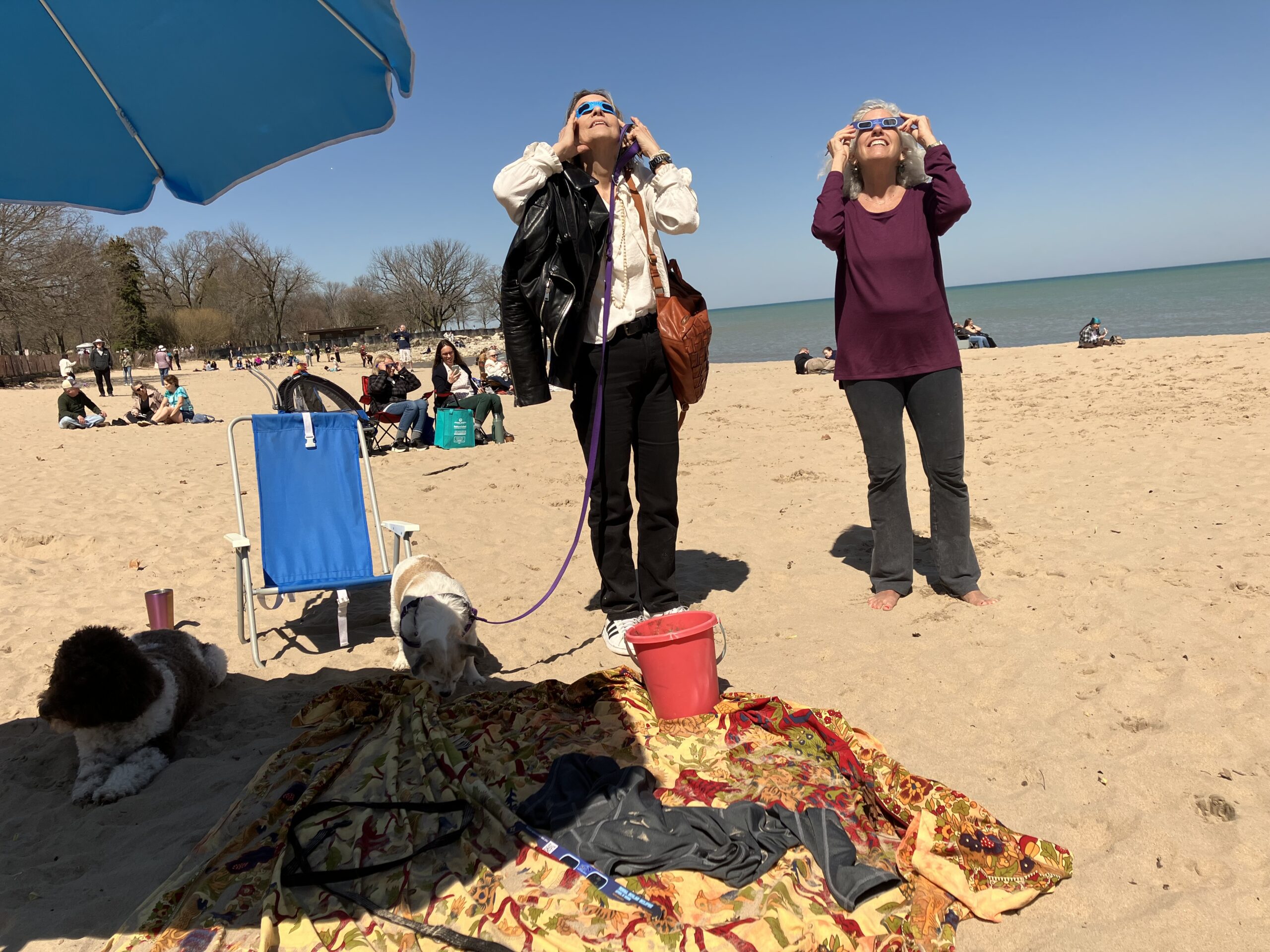By Bob Seidenberg
Evanston City Council members agreed Feb. 14 to allocate $200,000 from the City’s federal American Recovery Plan Act (ARPA) funds to launch a workforce program designed to create a pipeline between Evanston residents and jobs in the healthcare field.
The city’s contribution matches a $200,000 contribution from the Northshore University Health System.
In a discussion that at times turned testy, Council members voted 5-4 to approve the funds. The $400,000 investment is to be used to launch the ASPIRE Evanston Community Healthcare Workforce Development Program to develop a workforce pipeline, investing in students and young adults within the Evanston community by offering them training internships and other opportunities for jobs in the healthcare field.
Some Council members at the Feb. 14 meeting, though, expressed reservations about allocating the funds without a better picture of where the city stands on the ARPA funds it has received.
Evanston officials learned last year the city would receive $43.1 million in federal COVID recovery funds, news that officials greeted as a once-in-a-generation opportunity to address longstanding needs.
Other big requests headed Council’s way
The city has already earmarked more than $15 million of those funds for its own infrastructure, and parking and water system needs.
Meanwhile, some big requests for the funds from private groups will come before the city soon, including a $1 million request from The Aux, a group that hopes to create a Black business hub in southwest Evanston, and $2 million from Northlight Theatre to help in its relocation to a new home in downtown Evanston.
In discussion of NorthShore’s request, Council member Cicely Fleming, 9th Ward, said, “I’m sure it’s fine idea, but we have continued to tell people that we’re making a process and a plan for the [ARPA] rescue funds.
“And so I guess I’m just – without an overall plan – concerned about this spend. It sounds like NorthShore and a resident would put some money into it. So, you know, even without the rescue funds, maybe they would still do that, because they think it’s a good idea.
She also noted that the city had recently promoted Nathan Norman to become the city’s new workforce development director.
“It’ll be nice to see what his overall plan [is]… if he’s going to have another ask [for funds beyond the $200,000]” Fleming said.
Council member Thomas Suffredin, 6th Ward, agreed.
“I think the appropriate time to allocate the $200,000, if that’s what we choose to do, is after we have a comprehensive plan,” he said.
With similar requests on the way, he said, “we’re undermining our credibility in terms of when we do have to say ‘No’ to people.”
He recommended that Council members vote “No” to the $200,000 and wait for a comprehensive plan that lays out a framework for viewing the requests, “and that’s when we can talk about allocating funds.”
Council member Bobby Burns, 5th Ward, called the discussion “challenging,” saying he would likely vote for the request but he also holds concerns about the lack of an overall plan for the city in spending of the ARPA funds.
With the ARPA funds, he observed at the meeting, “The only thing we’ve done is create categories. Again, that’s not a plan; [those are] goals.”
What is needed, he said, is “a conversation between all of us so that we’re all on the same page about what our goals are, what our programs are.
“And I think if we could figure that out, we can move a lot quicker on this,” he said, adding he would not be against bringing in a project manager for ARPA funds, as some cities have done.
Council member Devon Reid, 8th Ward, said he estimated that officials have spent 75% of the first installment of the ARPA funds, which is about half of the $43.1 million.
Overall, he said, “we have spent a third or more of the money that we’re going to receive; and, so, while I think this particular program is good, and I think in Economic Development I voted for this, I didn’t vote for some of the other spending.”
Council member Eleanor Revelle, 7th Ward, acknowledged Council members’ desire for a “grand spreadsheet,” providing direction on how they might spend the federal recovery money.
“But that’s obviously not the way it’s proceeding,” she said.
“The Economic Development Committee, though,” she said, “has been meeting and vetting economic development proposals. So I think we’ve sort of suggested that that was a process.”
She said she was prepared to vote “Yes” for the program.
“It has tremendous community support from a number of really great partners in the community who are ready to jump in and make this initiative and success,” she said.
“So it is very important that we come up with our part of the funding for this program.
“I think it’s a really well thought out initiative and has every indication of success … reaching to District 65 [and] District 202 students,” she said, “and then also really intentionally providing opportunities and training for young adults.
“I think it’s really hitting all the groups that we are continually concerned about reaching with workforce training,” she said.
Clapped hands
Council member Peter Braithwaite, 2nd Ward, spoke of the work of the Economic Development Committee, talking about the process that would be used to fund such requests.
“We all clapped hands and decided that that was going to be our framework on how we were going to measure a successful project coming through economic development,” he recalled.
“So I am ready to support this,” he said. “I think it’s a wonderful initiative, with a hospital bringing much-needed jobs to our community.”
Third Ward Council member Melissa Wynne said, “I understand that we would all like to know exactly where every single one of these ARPA dollars is going to go in advance.
“But this money has arrived,” she reminded Council members. “These proposals are rolling in. We had several meetings here at the Council in which we determined what buckets [categories] that we would have. Those buckets didn’t go into great specification, but there was agreement that those that’s generally where that money was going to go.”
“We’ve had these proposals at Economic Development Committee for several months,” Wynne said.
“We all have agreed that workforce development is one of the most important issues here in Evanston. It’s an investment in our future. That’s exactly what this ARPA money is in designed to do, to invest in our economic future.”
She urged Council members to stop fiddling — “fiddisheling” — a term she said she heard her grandmother use, “when you were just sitting there and didn’t get anything done.”
(“My grandmother spoke Yiddish and about five other languages,” she added later.)
“Please, let’s move this forward,” she urged.
The vote was 5-4 in support of the allocation. Voting for it were Council members Braithwaite; Wynne; Jonathan Nieuwsma, 4th Ward; Revelle, and Reid. Voting against were Council members Clare Kelly, 1st Ward; Burns; Suffredin; and Fleming.
